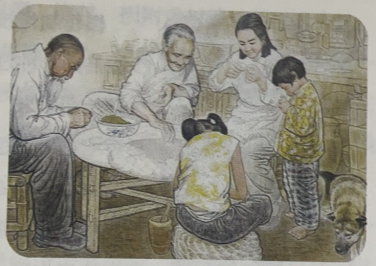申报地区:宜阳县 2014年12月 第4批
“冬至”为二十四节气之首,古人说:阴极之至,阳气始生,日南至,日短之至,日影长之至,故曰“冬至”。冬至,亦称“冬节”、“小年”,也是一个重要的传统节日。《汉书》中说:“冬至阳气起,君道长,故贺。”可见,冬至过节的习俗由来已久,并在民间流传至今。
在宜阳一直保留着过冬至拜师、包饺子和数九的习俗。据《宜阳县志》记载,宜阳也称冬至节为“拜冬节”,冬至日文人祭拜先师孔子,各学校都举行庆典拜谢先生。
相传,孔子曾游学宜阳,在宜阳有晒书台、麒麟冢等与孔子相关的传说,有说因冬至日是孔子的生日,故而在宜阳有冬至节尊师慰学的节日习俗。冬至这天,学校都会放假一天,村长或校董会置办礼品到学校慰问老师,组织家长和学生行拜师礼,学校也会组织师生“会餐”,以感谢老师的教育之恩,共同庆祝冬至节的到来。
冬至日,宜阳还有包饺子、吃饺子的习俗,有“冬至吃饺子不会冻耳朵”的说法。老人们常说:“冬至吃顿饺,上坡不弯腰;冬至吃顿扁(饺子也称“扁食”),上山不气喘”,一家人话家常、庆节日,亦有阖家团圆之意。在宜阳也有冬至“数九”的习俗,流传有“一九二九不出手,三九四九凌上走,五九六九凌消散,七九八九沿河看柳,九九杨落地,十九杏花开。”“冷在三九,热在三伏”的民俗谚语,指导人们生产生活饮食起居。
冬至是二十四节气的重要组成部分,至今仍影响着宜阳人民的生产生活和礼俗,具有很强的民族性和民俗性,是中华民族文化宝库的重要内容。

Winter solstice festival, the head of the twenty-four solar terms. What the ancients said about the winter solstice is when Yin Ji reaches the extreme, Yang Ji begins to appear. When the sun reaches the southern end, the time of day is shortened to the extreme, and the shadow under the sun grows to the extreme, so it' s called"the Winter Solstice". The Winter Solstice, also known as"Winter Festival"and "Xiao nian", is also an important traditional festival. The custom of celebrating the winter solstice has been around for a long time and has been spread among the people. In Yiyang, the custom of worshipping a teacher during the winter solstice, making dumplings and counting nine has always been preserved. According to the "Yiyang County Chronicles", Yiyang also called the Winter Solstice Festival as the"Worship Winter Festival". During the winter solstice, scholars paid homage to the ancestor Confucius, and all schools held celebrations to worship Mr. Xie. People in Yiyang also have the custom of eating dumplings during the winter solstice festival. The old people often say:Eating dumplings will not freeze ears during the winter solstice Festival. The winter solstice is the shortest day and longest night of the year in he Northern Hemsiphere. As an important part of the twenty-four solar terms, the winter solstice still affects the production, life, etiquette and customs of the people in Yiyang. It has a strong nationality and folklore, and is an important part of the treasure house of Chinese nation culture.
